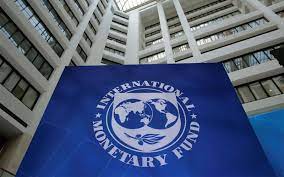
IMF advice criticized by Nigerian Labor
A recent IMF advice to the Federal Government was criticized by the Nigerian Labour Congress (NLC) and the Trade Union Congress (TUC).
In an issue paper titled ‘Nigeria: Selected Issues Paper Report‘, the IMF urged the Federal Government to eliminate fuel subsidies, citing that such payments undermine the country’s economic growth.
In response to the development, Joe Ajaero, deputy national president of the NLC, pointed out that the IMF had previously misled Nigeria. Ajaero said the IMF does not mean well for Nigerians.
He stated that, “The truth is that the IMF does not pretend to work for the masses and the workers. The IMF is for establishment.”
“There is no country partnering with the IMF that has survived on its advice. The recent history of Greece and other places is a clear testimony for anybody who wants to take the advice of the IMF.”
Ajaero added that Nigeria was not truly independent.
“This is another level of colonialism and if you look at the evolution of economic development, you will see that the continued subjugation of our economy to the dictates of this institution (IMF) shows that we are not economically independent,” he said.
Also reacting to the IMF report, National Deputy President of the TUC and National President of the Association of Senior Civil Servants of Nigeria, Tommy Etim, said the Federal Government must consider the socio-economic implication of the IMF’s recommendations.
According to Etim, the IMF once misled Nigeria with the Structural Adjustment Programme (SAP), which he said the country has not recovered from.
He added, “It is unfortunate that we are not looking at the economy from our cultural perspective. We are just looking at the economy from what is happening in other climes.
“In 1985, that was how they misled us into adopting the Structural Adjustment Programme which eventually led to the economic calamity we are facing today.
“Nobody can dictate to you how to run your country. We must look inward. They have seen Nigeria as a dumping group for their economy.
“Whatever policy they have, they bring it to the Nigerian economy and we have fallen prey because of what they call aid. These are things that have perpetually kept Nigeria where we are.”
